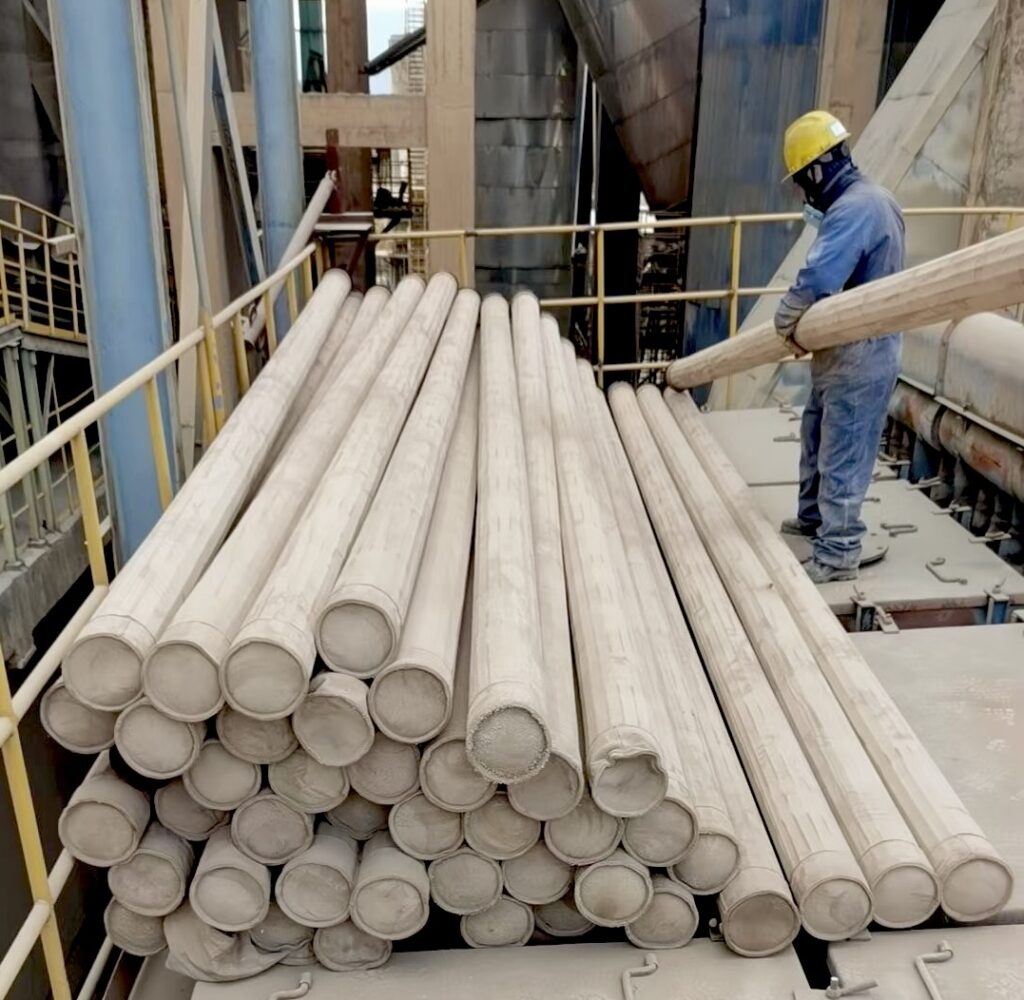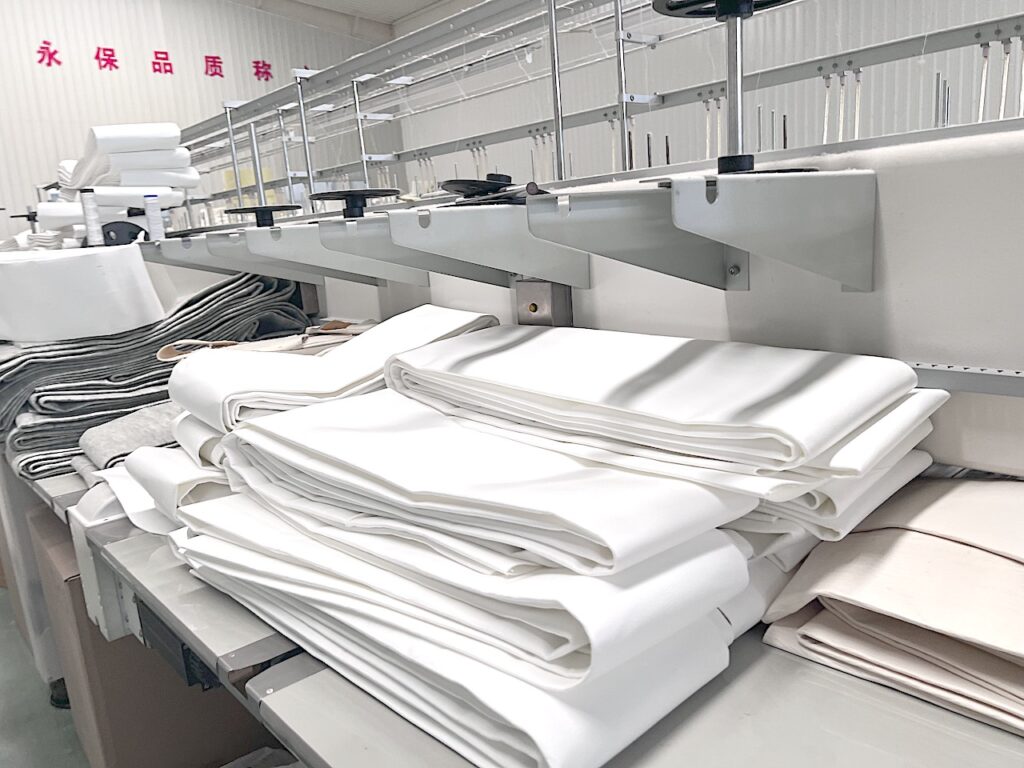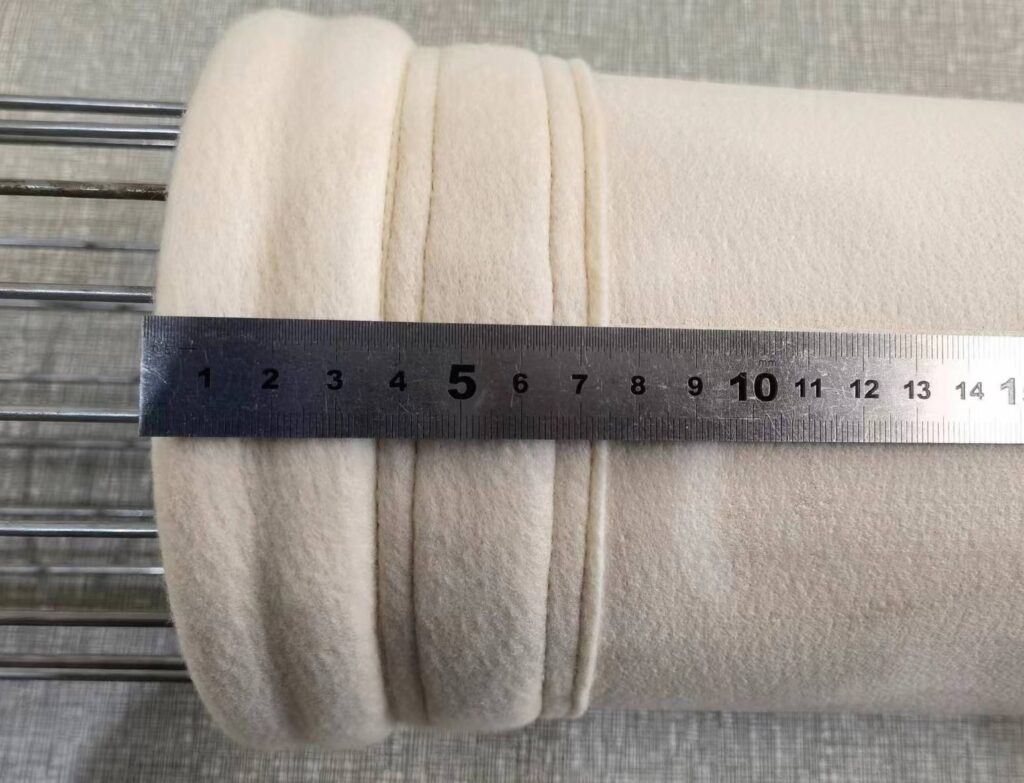The Ultimate Guide to Choosing the Right Dust Collector Filter Bag for Your Industrial Needs
Are you in need of a dust collector filter bag for your industrial operations? Choosing the right one is essential to ensure optimal performance and efficiency. With so many options available in the market, it can be overwhelming to make the right choice. That’s why we have created the ultimate guide to help you navigate through the selection process and find the perfect dust collector filter bag for your specific needs.
In this comprehensive guide, we will walk you through the different types of filter bags available, their materials, and their specific applications. We will also provide you with valuable insights on important factors to consider, such as filtration efficiency, bag lifespan, airflow requirements, and maintenance.
Whether you are looking for a filter bag for your woodworking shop, chemical plant, or any other industrial facility, this guide will give you all the information you need to make an informed decision. Don’t waste time and money on the wrong filter bag. Read on to discover how to choose the right dust collector filter bag that will keep your operations running smoothly and efficiently.

Importance of Dust Collector Filter Bags
Dust collector filter bags play a crucial role in maintaining a clean and safe working environment in industrial facilities. They are designed to capture and filter out dust particles, preventing them from being released into the air and causing health hazards.
Effective dust collection is essential not only for the well-being of the workers but also for compliance with environmental regulations. Different industries have different dust collection requirements, and choosing the right filter bag is vital to ensure efficient dust removal.
A well-designed and properly maintained dust collector filter bag can significantly improve the air quality in your facility, reduce equipment downtime, and increase productivity.

Types of Dust Collector Filter Bags
There are several types of dust collector filter bags available in the market, each designed for specific applications and operating conditions. The most common types include:
- Polyester Filter Bags: These bags are known for their excellent resistance to chemicals, moisture, and high temperatures. They are widely used in industries such as chemical processing, pharmaceuticals, and food processing.
- Polypropylene Filter Bags: Polypropylene bags are known for their high strength and resistance to acids and alkalis. They are commonly used in industries such as metalworking, mining, and cement production.
- Nomex Filter Bags: Nomex bags are highly resistant to high temperatures and are commonly used in industries such as asphalt production, steel manufacturing, and foundries.
- PTFE Filter Bags: PTFE bags have excellent chemical resistance and are widely used in industries such as power generation, waste incineration, and cement production.
- Fiberglass Filter Bags: Fiberglass bags are known for their high-temperature resistance and are commonly used in industries such as steel mills, glass manufacturing, and incineration.
Each type of filter bag has its own advantages and limitations, and choosing the right one depends on factors such as the type of dust being collected, operating temperature, and chemical exposure.

Factors to Consider When Choosing a Dust Collector Filter Bag
When selecting a dust collector filter bag, several factors need to be taken into consideration to ensure optimal performance and longevity. Here are some key factors to consider:
Filtration Efficiency
The filtration efficiency of a filter bag determines its ability to capture and retain dust particles of a specific size. It is usually expressed as a percentage and indicates the percentage of particles that the bag can remove from the air. Higher filtration efficiency means cleaner air and better protection against health hazards. It is important to choose a filter bag with the right filtration efficiency for your specific dust collection needs.
Bag Lifespan
The lifespan of a filter bag depends on various factors, including the type of dust being collected, operating temperature, and airflow rate. Some filter bags may need to be replaced more frequently than others, leading to increased maintenance costs and downtime. It is important to choose a filter bag that offers a balance between filtration efficiency and lifespan to optimize cost-effectiveness.
Airflow Requirements
Different industrial processes have different airflow requirements, and it is essential to choose a filter bag that can handle the required airflow rate without causing excessive pressure drop. A filter bag with low airflow resistance will minimize energy consumption and increase the efficiency of the dust collection system.
Maintenance
Regular maintenance is crucial for the longevity and performance of dust collector filter bags. Cleaning and inspecting the bags on a regular basis can help prevent dust buildup, bag damage, and premature failure. It is important to choose a filter bag that is easy to clean and maintain to minimize downtime and maximize productivity.
Compatibility with Existing Equipment
Before selecting a filter bag, it is important to ensure compatibility with your existing dust collection equipment. The filter bag should fit properly and seal tightly to prevent dust leakage. It is also important to consider factors such as bag size, attachment mechanism, and bag-to-cage ratio to ensure optimal performance.

Understanding Filtration Efficiency and Particle Size
The filtration efficiency of a dust collector filter bag is determined by its ability to capture and retain dust particles of different sizes. The size of the particles that need to be filtered depends on the specific industry and the type of dust being collected.
To understand filtration efficiency, it is important to understand the concept of particle size distribution. Dust particles are classified into different size ranges, typically measured in microns (µm). The smaller the particle size, the more difficult it is to capture and retain.
Different filter bags have different particle size capabilities, and it is important to choose a filter bag that can effectively capture the particle size range of your specific dust collection needs. This can be determined by consulting with filtration experts or referring to manufacturer specifications.

Common Problems with Dust Collector Filter Bags and Their Solutions
Even with proper selection and maintenance, dust collector filter bags can encounter problems that affect their performance and lifespan. Some common problems include:
- Bag Abrasion: Dust particles can cause abrasion on the surface of filter bags, leading to premature wear and tear. This can be addressed by selecting a filter bag material with high abrasion resistance or by using protective coatings.
- Bag Clogging: Dust buildup on the surface of filter bags can cause clogging, resulting in reduced airflow and pressure drop. Regular cleaning and maintenance can help prevent bag clogging. Additionally, the use of anti-static coatings or pulse-jet cleaning systems can help mitigate this issue.
- Bag Leakage: Improper sealing or damage to the filter bag can cause dust leakage, compromising the efficiency of the dust collection system. Regular inspections and repairs are essential to prevent bag leakage. It is also important to ensure proper bag-to-cage ratio and a tight seal between the bag and the collector housing.
- Bag Bursting: Excessive pressure or temperature can cause filter bags to burst, leading to system failure and potential safety hazards. It is important to select filter bags that can withstand the operating conditions of your specific application and to monitor pressure and temperature levels to prevent overloading.

Maintenance and Cleaning of Dust Collector Filter Bags
Regular maintenance and cleaning are essential to ensure the longevity and performance of dust collector filter bags. Here are some best practices for maintaining and cleaning filter bags:
- Regular Inspections: Inspect filter bags for signs of wear, damage, or clogging. Replace damaged bags promptly to prevent dust leakage and system failure.
- Pulse-Jet Cleaning: Many dust collection systems use pulse-jet cleaning to remove dust from filter bags. This involves releasing short bursts of compressed air into the bags to dislodge the accumulated dust. Regular pulse-jet cleaning can help prevent bag clogging and maintain optimal airflow.
- Manual Cleaning: In some cases, manual cleaning may be required to remove stubborn dust buildup. This can be done using a soft brush or gentle air pressure. It is important to follow manufacturer guidelines and safety precautions when manually cleaning filter bags.
- Bag Replacement: Over time, filter bags will wear out and need to be replaced. Regularly monitor bag performance and replace worn-out bags to ensure optimal dust collection efficiency.

Best Practices for Extending the Lifespan of Dust Collector Filter Bags
Extending the lifespan of dust collector filter bags can help reduce maintenance costs and downtime. Here are some best practices to maximize the lifespan of your filter bags:
- Proper Bag Selection: Choose a filter bag that is specifically designed for your industry and operating conditions. Consider factors such as temperature resistance, chemical compatibility, and filtration efficiency.
- Regular Maintenance: Implement a regular maintenance schedule to inspect, clean, and replace filter bags as needed. This will help prevent premature failure and ensure optimal performance.
- Optimize Airflow: Properly design and maintain the dust collection system to optimize airflow and minimize pressure drop. This will reduce stress on the filter bags and extend their lifespan.
- Monitor Operating Conditions: Regularly monitor operating conditions such as temperature, pressure, and airflow rate. Implement appropriate controls and alarms to prevent overloading and system failure.

Choosing the Right Dust Collector Filter Bag for Specific Industries
Choosing the right dust collector filter bag is crucial for ensuring optimal performance and efficiency in specific industries. Different industries have varying dust collection requirements based on factors such as particle size, temperature, moisture content, and chemical composition. Here’s a brief overview of selecting the right dust collector filter bag for specific industries:
- Cement Industry: In the cement industry, where high temperatures and abrasive dust are common, filter bags made from materials like aramid (Nomex) or PPS (polyphenylene sulfide) are preferred for their heat resistance and durability. PTFE (Teflon) membrane filter bags are also suitable for their excellent dust release properties.
- Power Generation: Power plants often deal with fine fly ash particles and corrosive gases. Filter bags made from PPS or fiberglass with PTFE membrane coatings are ideal for capturing fine particles and resisting chemical corrosion, ensuring reliable performance in power generation applications.
- Steel Industry: The steel industry generates heavy, abrasive dust containing metallic particles and fumes. Filter bags constructed from aramid fibers or fiberglass with ePTFE (expanded polytetrafluoroethylene) membranes are effective at capturing fine particulates and withstanding high temperatures and abrasion.
- Incineration: Incineration facilities produce hazardous and toxic fumes along with fine ash particles. Filter bags made from P84 (polyimide) or PTFE-coated fiberglass are suitable for capturing fine particulates and resisting chemical attack, ensuring compliance with environmental regulations.
- Food Industry: In the food industry, where hygiene is paramount, filter bags made from food-grade materials like polyester or polypropylene are used to capture food particles and maintain clean air quality. These filter bags are often washable and resistant to moisture and microbial growth.
- Pharmaceutical Industry: The pharmaceutical industry requires strict control over airborne contaminants to maintain product purity. Filter bags made from synthetic fibers like polyester or PTFE-coated fabrics are preferred for their high filtration efficiency and compatibility with cleanroom environments.
By understanding the unique requirements of each industry and selecting the appropriate dust collector filter bag materials and configurations, businesses can optimize dust collection performance, ensure regulatory compliance, and maintain a safe and healthy work environment.

In conclusion
Selecting the perfect dust collector filter bag for your industrial needs is essential for maintaining a clean and safe working environment while maximizing dust collection efficiency. With various industries having diverse requirements, it’s crucial to consider factors such as temperature, moisture, chemical composition, and particle size distribution when choosing filter bag materials and configurations.
For industries like cement, power generation, and steel, where high temperatures and abrasive dust are prevalent, filter bags made from materials like aramid, PPS, or fiberglass with PTFE membrane coatings offer excellent heat resistance and durability. In contrast, industries dealing with hazardous fumes and fine particulates, such as incineration and pharmaceuticals, benefit from filter bags made from materials like P84 or PTFE-coated fabrics, known for their chemical resistance and high filtration efficiency.
Furthermore, industries like food and pharmaceuticals prioritize cleanliness and product purity, necessitating the use of food-grade filter bag materials like polyester or polypropylene, which are washable and resistant to moisture and microbial growth.
When choosing a dust collector filter bag, it’s essential to partner with a reputable supplier like DiamFilter. With a wide range of high-quality filter bags tailored to various industrial applications, DiamFilter ensures that your specific needs are met effectively. Their expertise, coupled with a commitment to customer satisfaction, makes them the perfect choice for businesses looking to optimize their dust collection systems.
In conclusion, by understanding your industry’s requirements and partnering with the right supplier, you can find the perfect dust collector filter bag to meet your industrial needs, ensuring optimal performance and a safer work environment.
